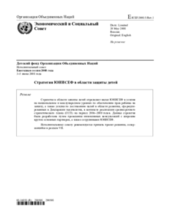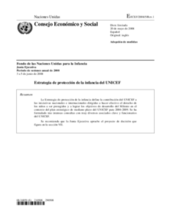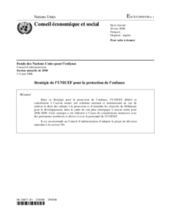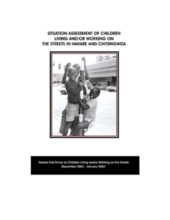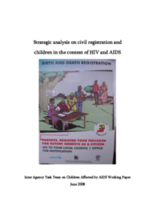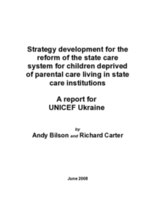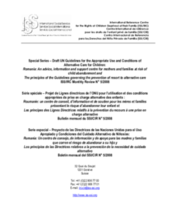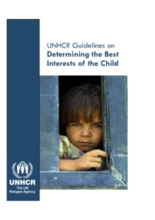Displaying 901 - 910 of 1028
Outlines the contributions of UNICEF to national and international efforts to fulfil children’s right to protection
Describe las contribuciones de UNICEF a los esfuerzos nacionales e internacionales para cumplir el derecho de los niños a la protección.
Outlines the contributions of UNICEF to national and international efforts to fulfill children’s right to protection
Analysis of the contributing causes, needs and vulnerabilities of children living and/or working in the street in Zimbabwe.
Examines dynamics between achievements in universal birth registration and enhanced protection of children.
Evaluation of need for systemic strengthening and partnering to ensure protection of children without parental and children involved with ICA
Assesses the causes and realities of children living in institutions in Guatemala with recommendations for systemic reform.
This report written for UNICEF identifies the key elements for a strategy to take forward the Government of Ukraine’s programme for the reform of child welfare.
Explores the principles of the Draft UN Guidelines governing the prevention of resort to alternative care and provides a short case study on successful programming
Provides a formal mechanism to determine the best interests of the child as a mechanism within a child protection system

